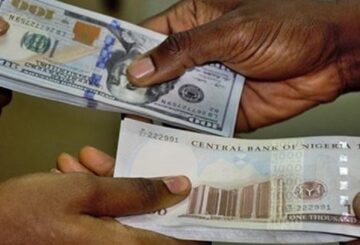In order to phase out the old naira notes, the Central Bank of Nigeria has announced that starting on Monday, currency exchange will begin in rural regions.
This information was made available by the CBN in a circular addressed to all Deposit Money Banks, Mobile Money Operators, Super Agents, and Agents and entitled “Naira redesign policy: CBN initiates currency swap scheme in rural/undeserved communities.”
Musa Jimoh, director of the department in charge of managing payment systems, and Haruna Mustafa, director of the department in charge of overseeing banking, both signed the circular.
“In furtherance of its naira redesigned policy, the CBN has sustained its nationwide awareness/ sensitisation programmes, enforced speedy collection of the new notes at the CBN branches by the DMBs and mandated issuance of the new naira notes through Automated Teller Machines to ensure distribution is fair, transparent and evenly spread across the country.
“In addition to these measures and in recognition of the need to maximise the channels through which undeserved and rural communities can exchange their naira, the Bank is launching a cash swap programme in partnership with super agents and DMBs. The programme enables citizens in rural areas or those with limited access to formal financial services to exchange old naira notes for redesigned notes.”
The service will be open to everyone without a bank account, according to the circular, in order to promote financial inclusion.
The notice reads: “The old N1,000, N500, N200 notes can be exchanged for the newly redesigned notes and/or the existing lower denominations (N100, N50 and N20, e.t.c), which remain legal tender.
“The agent shall exchange a maximum of N10,000 per person. Amounts above N10,000 may be treated as cash-in deposit into wallets or bank accounts in line with the cashless policy. BVN, NIN or voter’s card details of the customers should be captured as much as possible.”
According to the updated cash withdrawal limit regulation, it said that designated agents were qualified to obtain the redesigned notes from the DMBs.
Additionally, cash-out fees might be charged by agents for cash swap transactions, but they were not allowed to charge their clients any additional commissions in exchange for this service.





